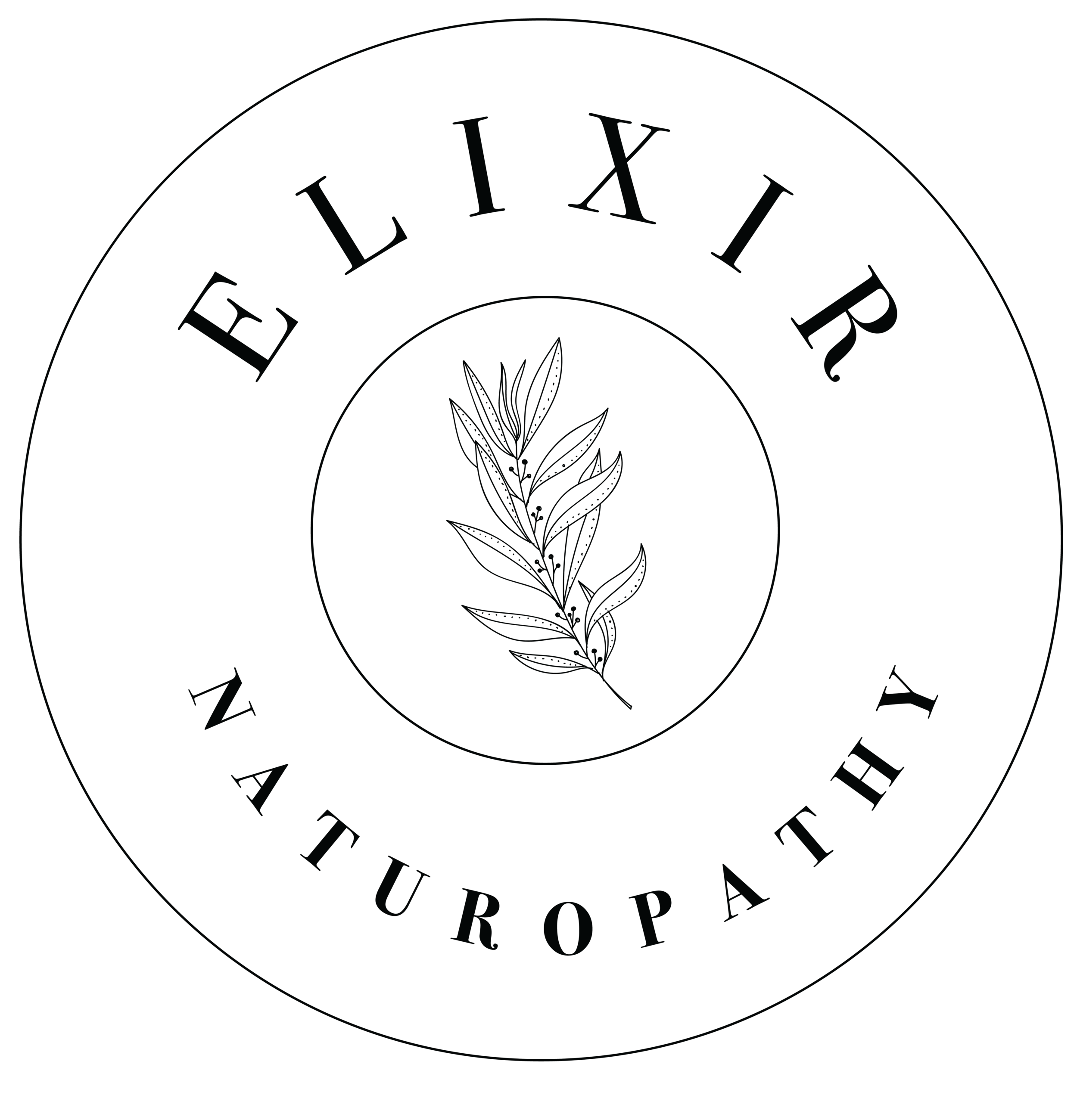We all want to wake up and feel beautiful, radiant and confident in our own skin. While we should be able to do this without a second thought, regardless of colour or texture, sometimes underlying conditions or shifts in the body can get in the way of our beautiful glow and spirit.
Read MoreIodine is an essential trace mineral integral for the formation of thyroid hormones, which are needed for growth and development and metabolic processes throughout the body.
Read MoreThere is a strong connection between the thyroid and gut health. Studies have shown that low thyroid hormone production can lead to leaky gut and impaired digestive health can impair thyroid function. Optimal digestion supports a reduction in the antibodies associated with autoimmune conditions such as Hashimoto's and Graves.
Read MoreUnderstand the complexities of a condition known as SIBO and how it can be a driving factor in thyroid conditions.
Read MoreSunday afternoon comes around, it’s exfoliation time. Out come the mits, the coffee scrubs and all the buffering machines. But there’s one tool you shouldn’t be saving just for Sundays…
Read MoreWe’re all trying our best to live clean, green lives. It’s one thing that we know is beneficial for our overall health. Only, these days the world we live in makes it harder to escape them. Environmental toxin exposure is concerning; from the food we eat and the water we drink to the products we clean our bodies and homes with. More often than not they’re laden with high doses of toxins that have devastating effects on our health in the long-run.
Read MoreThe thyroid gland is a powerhouse in the human body. But because a lot of it’s magic happens behind the scenes in the endocrine (hormonal) system, when things go wrong they can be hard to pick up on. There are a few telltale signs that we tend to think nothing of, but when they begin to arise collectively (or sometimes on their own), they begin to point to a thyroid problem.
Read MoreMaybe you haven’t even realised all of the amazing things that your thyroid gland does for you each day, but maintaining good health in this gland is essential for your wellbeing.
Read MoreIodine is an essential trace mineral integral for the formation of thyroid hormones, which are needed for growth and development and metabolic processes throughout the body.
Read MoreIn today's day and age we are working longer hours, not getting enough sleep and turning to coffee and sugar to push through the exhaustion. Only to wake up the next day and do it all over again. This my friend, is a recipe for burnout.
Burnout otherwise known as adrenal fatigue, is a chronic negative response caused by excessive and prolonged stress. Burnout is a state of emotional, physical, and mental exhaustion and occurs when you feel overwhelmed, emotionally drained, and unable to cope with the constant demands of life.
Read MoreAcne is a condition that is commonly thought of as a condition only affecting adolescents. However up to 51% of women between the ages 20-29 and 26% of women between 40-49 also suffer from this condition.
Acne is caused by multiple factors such as increased sebum secretion, inflammation, follicular keratinization, and Propionibacterium acnes. For many women, acne can be a debilitating condition that can have a huge impact on mental wellbeing.
The pathogenesis of acne in adult women can be quite complex and isn't always due to hormonal imbalances. So I am going to share with you the top contributing factors to be aware of.
Read MoreYou may have heard of a particular nutritional “fad” at present called seed cycling to promote healthy hormones. This is certainly something I get asked about often in my practice.
So I thought I would share with you exactly what seed cycling is, what the research says, how to implement seed cycling and what to expect when you do.
Read MoreFeeling stressed or overwhelmed? Your not alone. In fact 26% of Australian experience moderate to severe stress on a daily basis. In addition, stress often accompanied by feelings of anxiety and depression.
Whether it's the demands of deadlines at work, juggling after-school activities for the kids, or financial pressures that come with the ever increasing cost of living, all while trying to maintain some kind of social life. We all experience some form of stress.
What's more, this often leads us to neglect our own health to meet the needs of everyone around us. In a time where we really need to be supporting and nourishing our bodies.
So how can you reduce your stress? I am here to show you 6 of the best self care rituals you can incorporate easily into your day to reduce stress.
Read MoreAs a naturopath, I see a lot of women and their partners looking for a quick and easy way to enhance and better their chances for fertility. Unfortunately, the bad news is there’s no ‘quick fix’. But the good news? There are a number of ways to increase your chances of falling pregnant.
It’s important to understand that every single aspect of the body is connected, and oftentimes in the most unexpected of ways. From our diets and the stress we feel at work, to the environment we live our day to day lives in, every part of our lifestyle has a fundamental effect on our wellbeing.
But with so much confusing or conflicting information in the health industry today, how can you be sure you’re doing the right thing, especially when it comes to preparing your body for pregnancy?
Let me show you five ways you can enhance your fertility and overall wellbeing by making a few simple changes to your diet and lifestyle:
One of the most common questions I receive on a day-to-day basis is this: Why do so many of us still suffer from breakouts as adults? And what foods should we avoid to prevent acne?
I get it. Because nothing wreaks havoc on our confidence quite like having bad skin.
While hormones and stress are certainly the top factors that throw off the normal balance of your skin, the food we eat, and our diet can also have a massive impact on the appearance of acne. After all, as the saying goes – true beauty begins from the inside, out.
So in this blog, I’m going to dive into the 4 foods that are most likely to aggravate your skin and clear up the ever-muddy waters related to what we put in our bodies and highlight how you can best align your diet with the overall health of your skin.
Read MoreMarch is Endometriosis awareness month. A month to shine a light on this debilitating disease which affects 1 in 10 womens and with an estimates 176 million cases world wide.
Endometriosis is a chronic disease in which endometrial like tissue, usually found lining the uterus (endometrium), grows outside the uterus. While this abnormal growth is often found surrounding the ovaries and fallopian tubes or within the peritoneal (abdominal) cavity, in some advanced cases it has also been found in the lungs and brain.
Read MorePremenstrual syndrome (PMS) is a common health condition experienced by up to 75% of women of reproductive age. PMS is a group of symptoms, both physical and emotional, experienced by a woman in the two weeks leading up to menstruation, also known as the luteal phase. With symptoms usually subsiding shortly after menstruation begins.
In some cases PMS can develop into premenstrual dysphoric disorder (PMDD). PMDD is a more severe form of PMS, effecting about 3-6 % of women. PMDD be so debilitating that it impacts one's quality of life. Women who have had major depression are more at risk than others to experience PMDD.
Read MoreYou might be surprised to learn that there is more than just one type of oestrogen.
Oestrogens are a group of steroid hormones produced in various organs (not just the ovaries) and the level of these oestrogens change throughout life and in physiological and pathological conditions.
While oestrogen is typically thought of as a female hormone, it is produced by males also. In women, this group of sex hormones are responsible for the development and regulation of the female reproductive system and secondary sexual characteristics such as breasts, endometrium, and regulation of the menstrual cycle.
Within the oestrogen hormone family, there are three main forms to focus on:
Read MoreIt’s the beginning of the year and as we all settling back into work and life the pressures and stress can begin to creep up again.
Female reproductive health is an area I work a lot with in clinic and a very common theme with many of my clients is the impact stress has on the female reproductive system.
Before we get into how stress impacts sex hormones I really want to get to the core of what stress is and how it can present itself.
Stress is defined as “a state in which homeostasis is threatened or perceived to be threatened.”
Read More



















